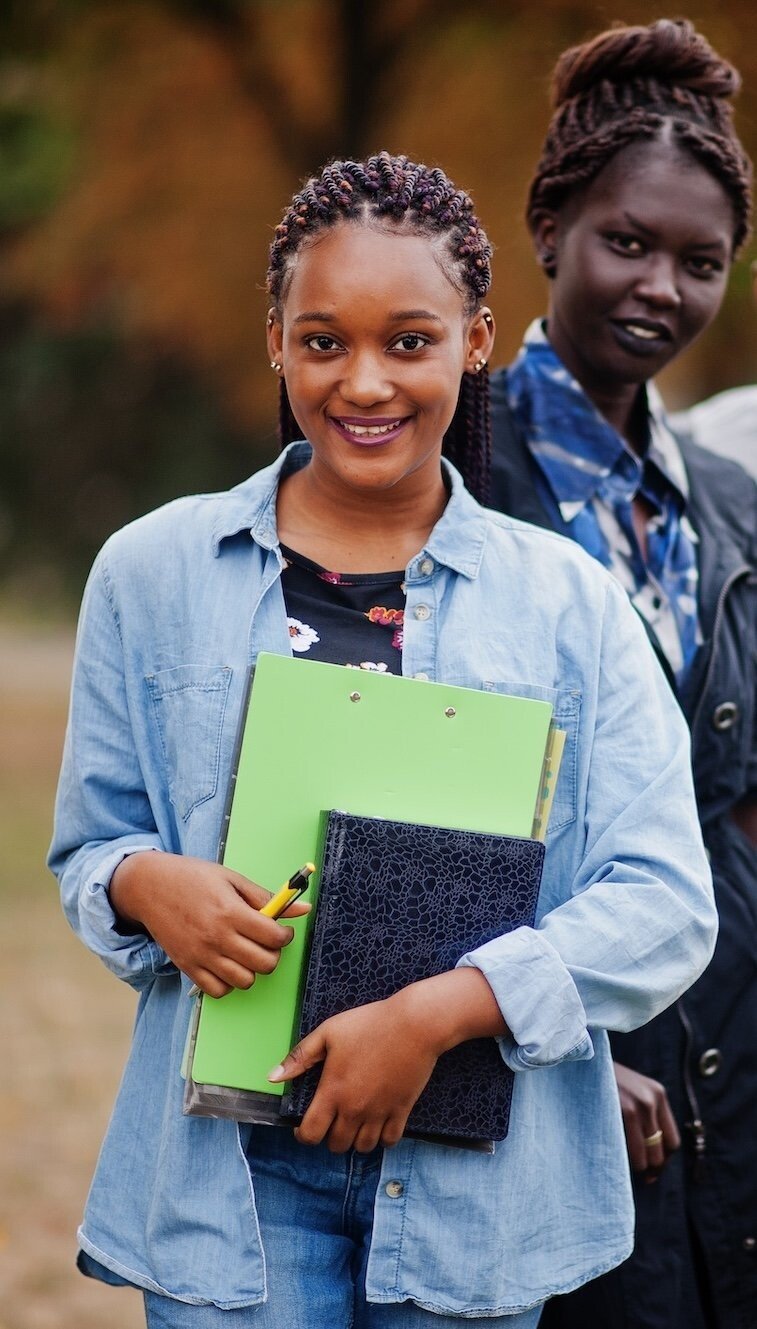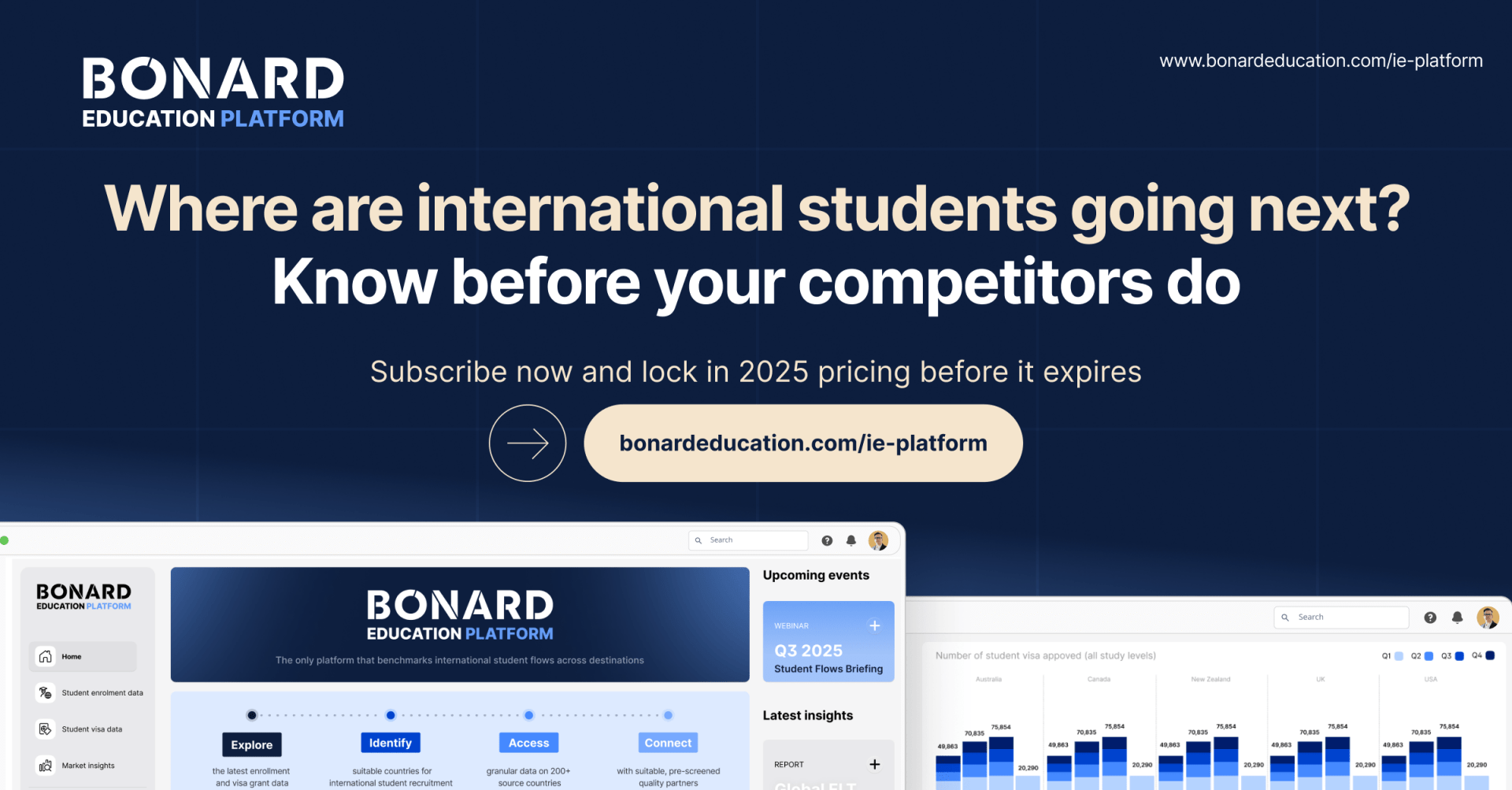If you are short on time:
Across Nigeria and Ghana, a generation of ambitious young people is looking beyond their borders for opportunity.
The motivation is simple: limited university spaces, rising competition for local jobs, and a growing belief that international education is the key to social and economic mobility.
Even with respected universities at home, capacity simply cannot keep up with demand.
For many families, studying abroad is no longer a luxury. It is a necessity to secure employability, global exposure, and long-term stability.
MACRO-LEVEL INSIGHTS
Study demand outpaces local capacity
Across both countries, demand for higher education continues to outstrip local capacity.
Nigeria alone produces thousands of high school graduates every year - far more than its universities can absorb.
Ghana faces a similar bottleneck, with limited placements in public institutions and increasing competition for private university seats.
The result?
A generation of capable, ambitious students looking outward to countries that can offer recognised qualifications, employability, and a clear return on investment.
Even with respected universities at home, families increasingly see international education as the safest and most transformative investment they can make for their children’s future.
Economic shifts expanding access
The financial landscape is also shifting.
Rising middle class
Rising household incomes are expanding access to global education, particularly in cities like Lagos, Accra, Port Harcourt, and Kumasi.
According to Oxford Economics, the number of African households earning around $35,000 USD annually is projected to grow by nearly 50% over the next decade.
Currency headwinds
Yet affordability remains a delicate balance. Currency depreciation and inflation are constant headwinds.
In Nigeria, new foreign exchange policies have made international tuition payments unpredictable.
In Ghana, the cedi’s 14% depreciation in 2024 pushed study costs higher.
Still, the commitment to quality education is unshaken. Even as budgets tighten, families continue to prioritise learning abroad, viewing it as a long-term pathway to stability and opportunity.
Aligning with national development priorities
The smartest student recruitment strategies are those that align with what local governments value most: skills for economic growth.
In Nigeria, the National Development Plan (2021–2025) outlines key investment areas:
health,
infrastructure,
agribusiness,
and energy.
This focus is already shaping study preferences. Programs tied to healthcare, renewable energy, infrastructure management, and food security attract strong interest.
Ghana’s own education reforms, including the Commission for TVET (C-TVET) and the Tertiary Education Policy Framework, show a national push toward career-ready, technical education. Students are increasingly looking for programs that connect directly to these growth sectors.
For international institutions, aligning program offerings with these priorities is not just a good strategy; it is essential for long-term relevance.

NIGERIA & GHANA
National priorities
 Healthcare
Healthcare
 Energy &
Energy &
infrastructure
 Agribusiness
Agribusiness
 Technical education
Technical education
Domestic policy shifts support career-driven programs
Recent policy changes at home are also reshaping how students approach study abroad.
Nigeria
Foreign exchange restrictions and reduced scholarship funding (through TETFund and PTDF) have made overseas study more self-funded and selective.
The rise of over 30 new private universities could slowly expand local capacity, but not nearly fast enough to meet demand.
Ghana
Policies like Free Senior High School and new TVET programs aim to keep more students in-country.
Still, the combination of currency pressure and limited postgraduate opportunities continues to push demand outward, especially for career-oriented programs with clear outcomes.
The trend is toward fewer, more focused students: those seeking practical degrees with measurable career returns.
RECRUITMENT REALITIES
Key insights to watch
Nigeria and Ghana remain high-potential, but not without challenges.
Student recruiters face a familiar mix of economic volatility, visa uncertainty, and shifting student preferences:
Currency fluctuations and inflation weaken household purchasing power
Foreign exchange shortages complicate tuition payments
Cost sensitivity pushes students toward affordable alternatives like Turkey, Hungary, and the UAE
Stricter visa rules in the UK, Australia, and especially Canada are constraining student pipelines
Academic interests are shifting rapidly from Business and Management toward STEM, Data Science, and Health programs.
Success here requires agility. Institutions must balance affordability, relevance, and responsiveness to stay ahead of competitors.
Cultural approach: flexibility and relationship-building
Relationships are everything in Nigeria and Ghana.
Agents, school counsellors, and parents all expect clear communication, reliability, and follow-through. Meetings are often personal and direct, and flexibility during negotiations is valued as much as professionalism.
Institutions that invest time in face-to-face engagement and long-term partnerships consistently see stronger results. In both countries, trust takes time to build, but once earned, it drives sustained success.

NIGERIA & GHANA
Challenges to navigate
![]()
Economic volatility
![]()
Visa uncertainty
![]()
Shifting preferences
![]()
Cost sensitivity
Meet the students: Nigeria & Ghana
Innovation & tech-driven learners
Today’s Nigerian and Ghanaian students are pragmatic dreamers.
They are drawn to fields that connect directly to the global economy, and where job demand is rising fastest.
Technology, Data Science, Artificial Intelligence, and Engineering top the list
Health and Life Sciences remain strong as both nations invest in healthcare infrastructure
Business and Management still hold appeal, but growth is flattening as students favour digital and technical skills
Nigerian students often approach international education with a strong value mindset. They seek affordability and flexibility.
Ghanaian students, on the other hand, tend to prioritise measurable outcomes and quality, even at a higher cost.
What unites both groups is a focus on employability: education that leads to opportunity, not just a degree.

Beyond the capitals
Student recruitment is no longer confined to Lagos and Accra.
Secondary cities such as Ibadan, Port Harcourt, Kumasi, and Warri are quickly becoming new frontiers.
These regions are home to highly motivated students, many of whom have the resources but lack sufficient access to direct university outreach.
Engaging these markets early can make all the difference. Institutions that establish local presence or partnerships now will be the ones reaping long-term rewards.
Mainly interested in the Big 4, with Europe rising
Over the past five years, outbound mobility from both Nigeria and Ghana has surged, but with distinct trends across destinations.
Nigeria:
Student numbers increased from ~52,000 to 142,000 between 2019/20 and 2023/24 across 21 study destinations
The UK remains the top choice, followed by Canada, while Malaysia saw a decline
Europe is gaining ground: Italy (+37%), Netherlands (+76%), Norway (+44%), and Turkey (+70%) since 2019
Student visa approval rates remain high in the UK (94–95%) but lower in Australia (63%) and New Zealand (49% in Q2 2025)
Ghana:
Canada hosted around 13,000 Ghanaian students in 2024, compared to just 2,050 in 2019
Germany is now the fourth-largest destination, with nearly 2,500 students enrolled in 2023/24
Interest in Italy, France, and Turkey has remained stable, pointing to more diversified preferences across Europe

142K
Nigeria
Students abroad in 2023/24, up from 52K in 2019/20
13K
Ghana to Canada
In 2024, compared to just 2,050 in 2019
94%
UK Visa Approval
Remains high for Nigerian students
DECISION DRIVERS
When choosing where to study, students from Nigeria and Ghana consistently weigh value and outcomes.
Their top priorities include:
Affordability and scholarships
Student Housing and living conditions
Employability and post-study opportunities
Part-time work options
The decision-making process is increasingly rational.
Families now approach education abroad as an investment, one that must lead to tangible, long-term returns.

NIGERIA & GHANA
Strategies for efficient student recruitment
To stand out in Nigeria and Ghana, universities and colleges should:
![]()
Align academic programs
with growth sectors: healthcare, infrastructure, agribusiness, and energy
![]()
Showcase career outcomes
and highlight success stories from African alumni
![]()
Transparent pricing
offer flexible pricing and targeted scholarships to address affordability
![]()
Expand reach
beyond major cities and engage secondary markets early
![]()
Strengthen partnerships
with agents, scholarship boards, and local universities
![]()
Use credible data
from trusted sources (World Bank, Trade.gov, national ministries) to support messaging
Looking ahead
Nigeria and Ghana are not just markets.
They are launchpads for Africa’s next generation of global talent.
Ambition in Nigeria and Ghana is high, and demand for quality education continues to grow. However, competition among study destinations is intensifying, and students are becoming increasingly discerning.
"Ambition in Nigeria and Ghana is high, and demand for quality education continues to grow"

For institutions that can unite affordability with strong outcomes and meaningful local engagement, the opportunity is significant.
The coming decade will bring not only more Nigerian and Ghanaian students studying abroad, but also more informed and intentional decisions about where they choose to go, and why.
And for those ready to adapt, that is where the real growth begins.
CONTACT FORM
Turn student mobility shifts into your strategic advantage
Whether you are exploring new source markets or adjusting existing ones, our team is here to guide you with actionable, research-backed insights
Since 2007, BONARD Education has supported educational institutions worldwide by tracking international student demand, student visa trends, and market movements.
We know:
Where international students are going
What drives their decisions
How to adapt your student recruitment strategy so that shifting policies do not derail your goals
Submit the form, and learn more about how BONARD Education can support our institution’s student recruitment planning.



